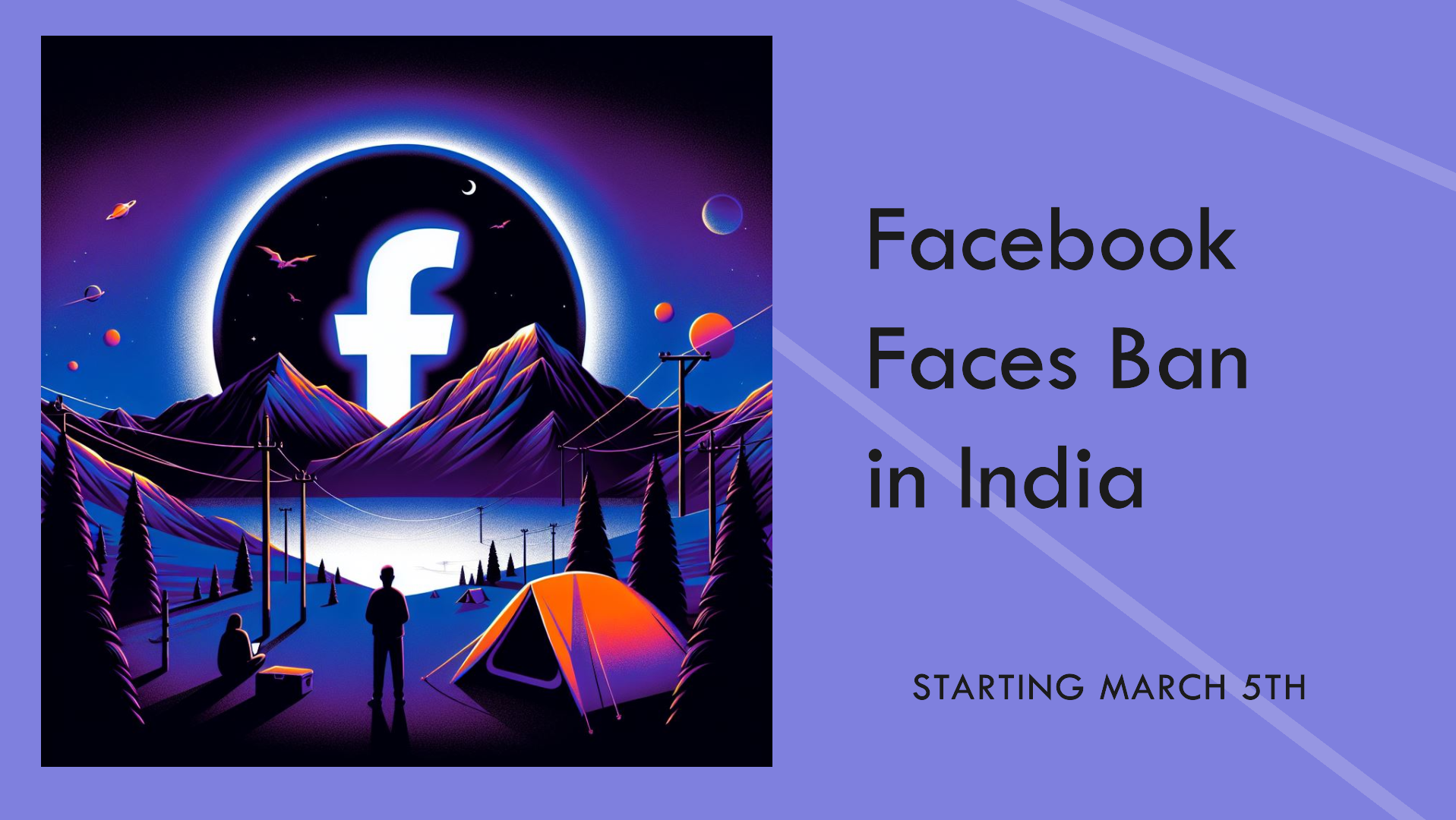Global Shockwaves: The Worldwide Facebook Ban Unfolding on March 5th, 2024!
In a seismic move that has sent shockwaves through the global digital landscape, numerous countries are poised to enact a simultaneous ban on Facebook starting March 5th, 2024. This unprecedented decision, driven by concerns ranging from privacy issues and regulatory compliance to national security, marks a turning point in the way societies interact with one of the world’s most influential social media platforms.
The Global Facebook Ban: A Coordinated Effort
Governments across the globe, each for their distinct reasons, are uniting to impose a ban on Facebook, creating a coordinated effort that transcends borders. This worldwide action brings forth a myriad of questions about the future of social media, digital governance, and the delicate balance between individual freedom and national security.
1. Regulatory Compliance and Privacy Concerns
One of the primary catalysts for this global ban revolves around mounting concerns over Facebook’s regulatory compliance and its approach to user privacy. Governments argue that the platform has been insufficiently transparent in handling user data and complying with local regulations. The move aligns with a broader global trend of increasing scrutiny on tech giants and their responsibilities in safeguarding user information.
2. National Security Apprehensions
The specter of national security looms large over this decision. Governments express worries about the potential misuse of Facebook, particularly in the context of intelligence gathering and the propagation of misinformation that could compromise a nation’s safety. This concern is not confined to a single region but is shared by multiple countries, reflecting a shared perception of the platform’s impact on national security.
The Impact on Global Digital Landscape
1. User Reactions: A Mixed Bag of Emotions
As the announcement reverberates worldwide, users are grappling with a spectrum of emotions. While some applaud their governments for taking a strong stance to protect privacy and national security, others express concerns about the restriction of freedom of expression. The ban prompts a reassessment of the role of social media in the daily lives of individuals and its implications for democracy.
2. Businesses in Turmoil: Adapting to the New Reality
For businesses, the Facebook ban poses a significant challenge. Many companies heavily rely on the platform for marketing, outreach, and communication. The sudden absence of this digital megaphone necessitates a rapid reassessment of digital marketing strategies. Businesses are forced to diversify their online presence, exploring alternative platforms and strategies to maintain visibility and engagement with their audience.
SEO Strategies: Navigating the Post-Facebook Era
1. Diversifying Digital Presence
In the aftermath of the Facebook ban, businesses are urged to diversify their digital presence. Exploring alternative social media platforms, creating engaging content on different channels, and investing in a robust website become imperative. This diversification not only ensures visibility but also provides a buffer against potential future bans on other platforms.
2. SEO Optimization: A Critical Imperative
Search Engine Optimization (SEO) emerges as a critical tool for businesses navigating the evolving digital landscape. With the absence of Facebook, companies need to focus on optimizing their online content to enhance visibility on search engines. This strategic approach ensures that businesses remain accessible to their target audience, irrespective of the platform bans.
The Future of Social Media
1. Alternative Platforms Rise: A New Social Media Landscape
As Facebook faces a global ban, alternative platforms are likely to rise to prominence. Users and businesses will seek new spaces for communication, expression, and marketing. The emergence of these alternatives could redefine the social media landscape, introducing innovative features and competition that foster a healthier digital environment.
2. Digital Governance and Freedom of Expression: Striking a Balance
The Facebook ban prompts a broader conversation about digital governance and the delicate balance between security concerns and freedom of expression. Governments must navigate this terrain carefully, ensuring that the restriction of social media platforms does not infringe upon essential democratic values. Striking a balance becomes crucial in shaping the future of online communication.
Conclusion: Adapting to the New Normal
As the global Facebook ban unfolds on March 5th, 2024, the world witnesses a paradigm shift in digital communication. Users, businesses, and governments must adapt to this new normal, exploring alternative avenues for interaction, communication, and information dissemination. The role of SEO becomes pivotal for businesses navigating the post-Facebook era, ensuring they remain visible and accessible in the ever-evolving digital landscape.
In conclusion, the worldwide Facebook ban is not just a technological disruption but a reflection of the intricate interplay between technology, governance, and societal values. Adapting to this change requires a proactive approach, fostering innovation, and maintaining a delicate equilibrium between individual rights and collective security in the digital age.




Post Comment